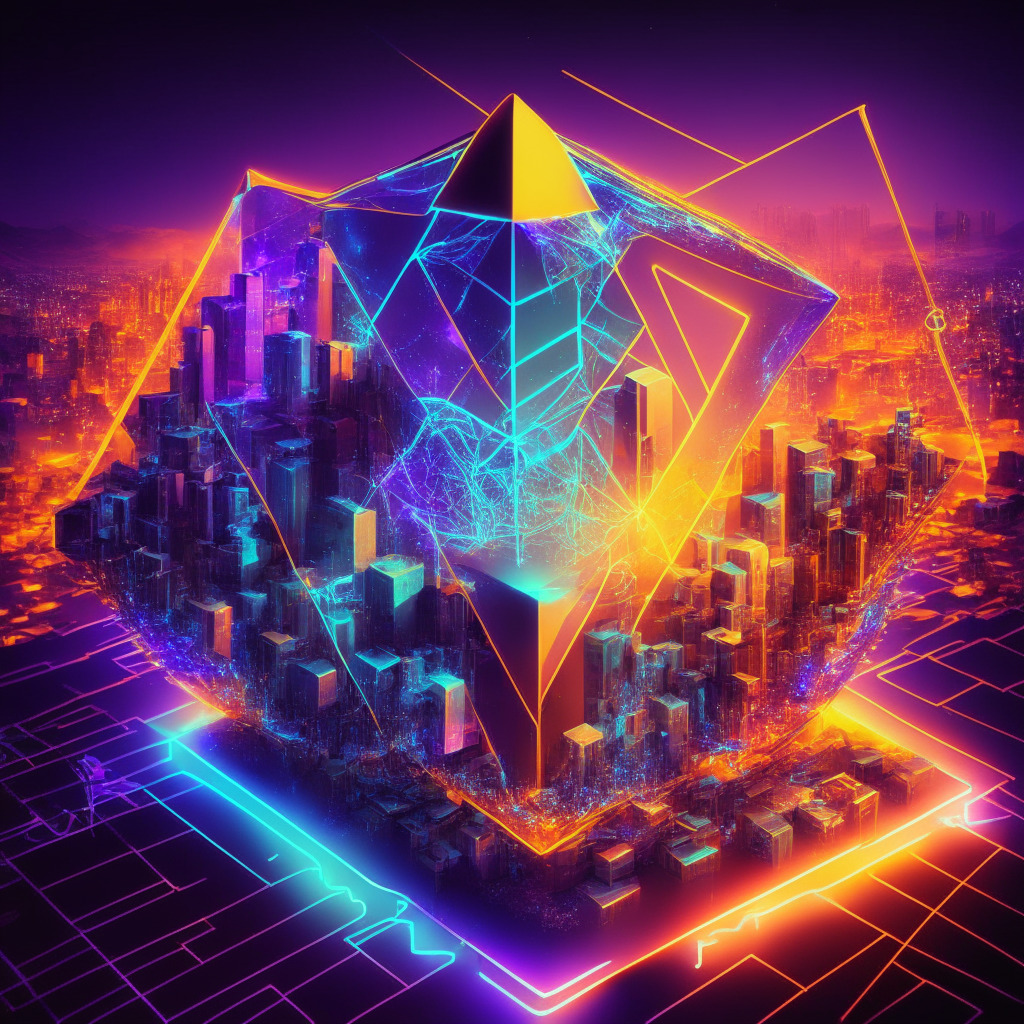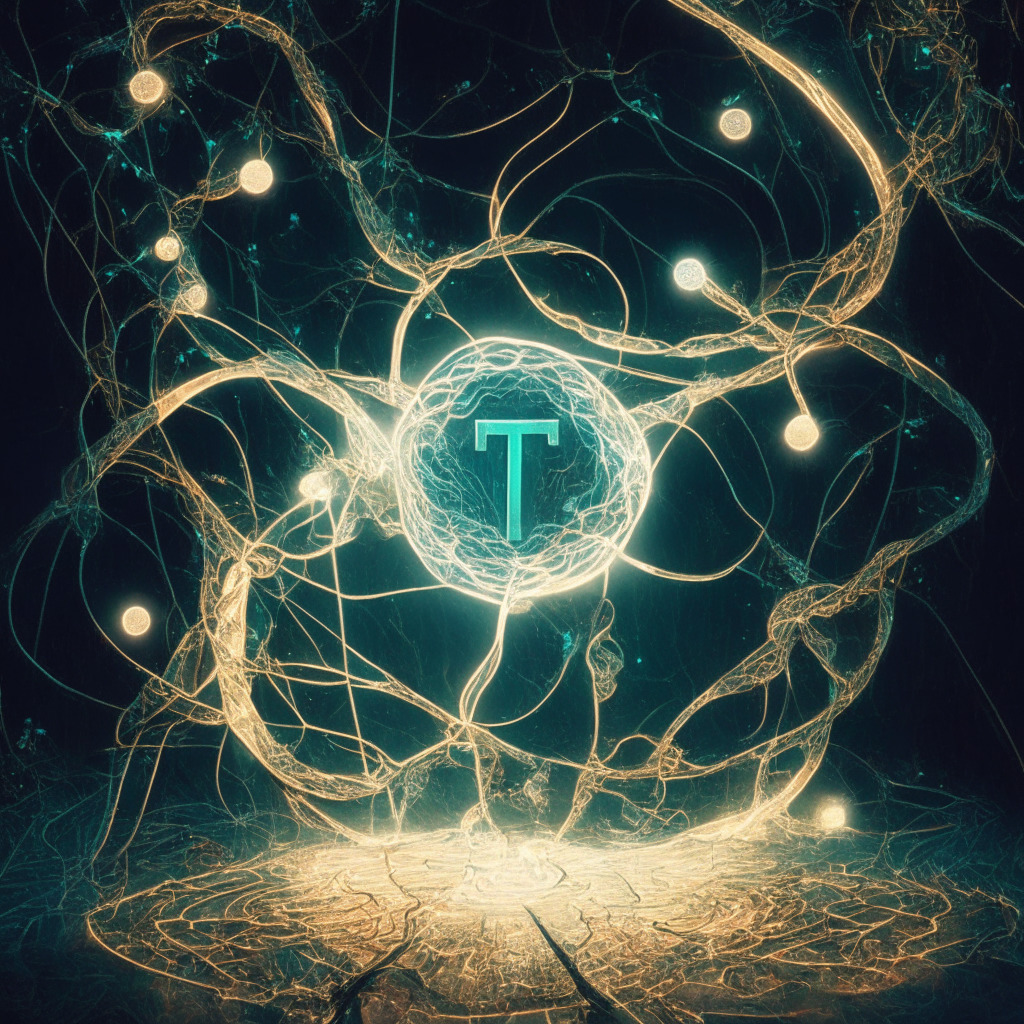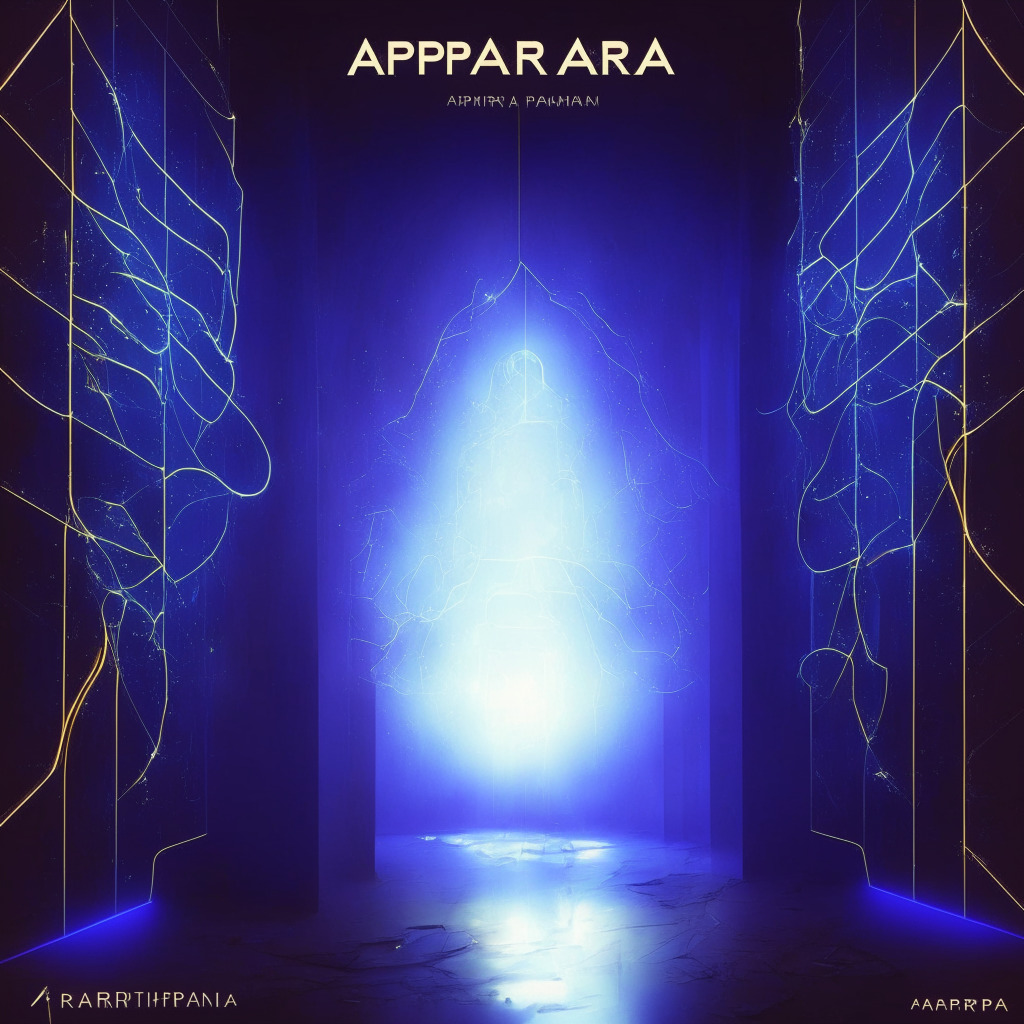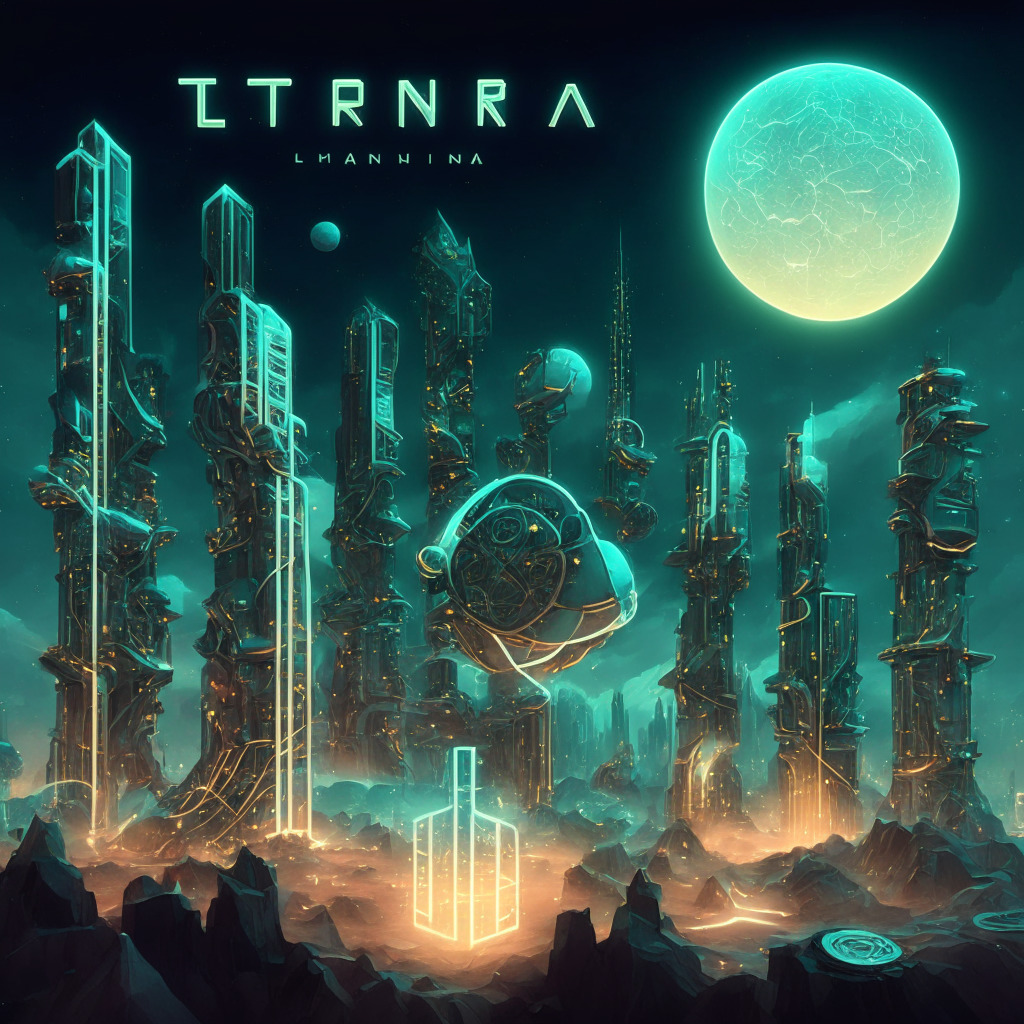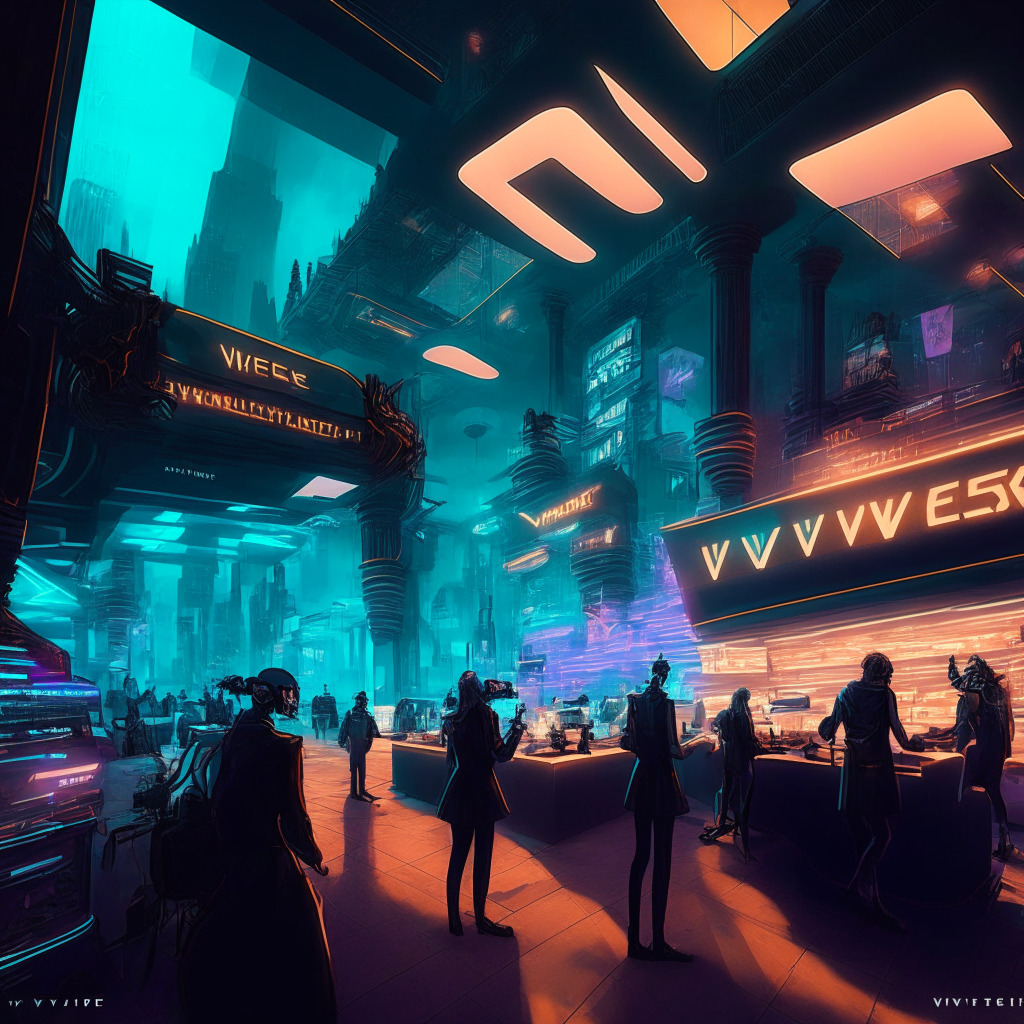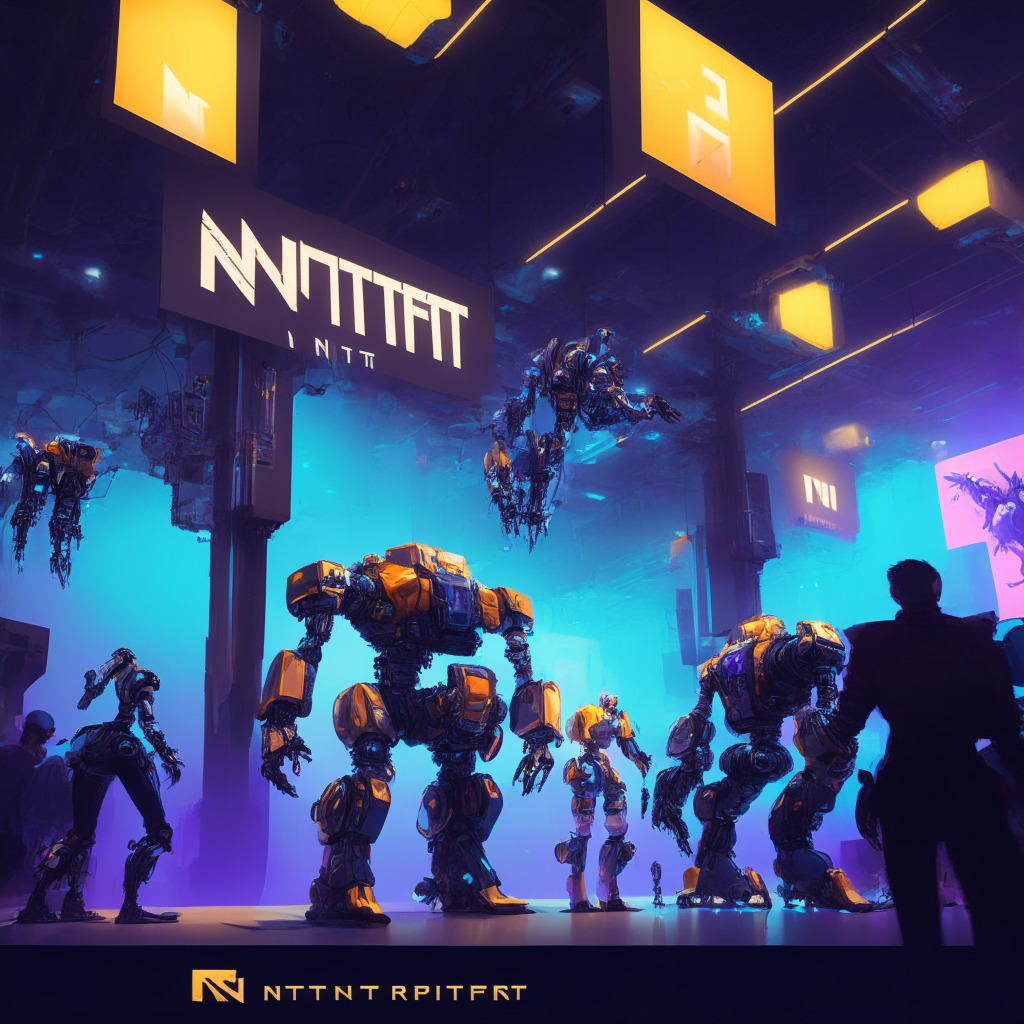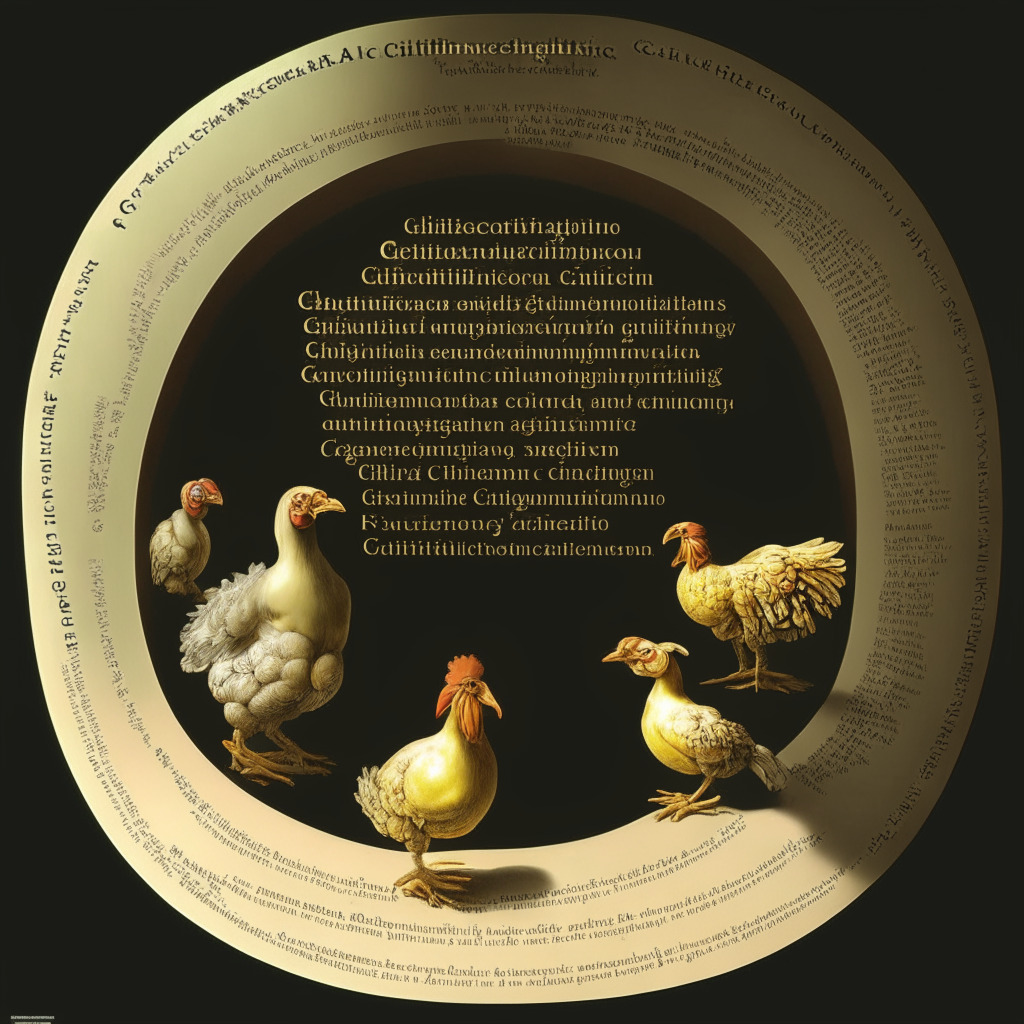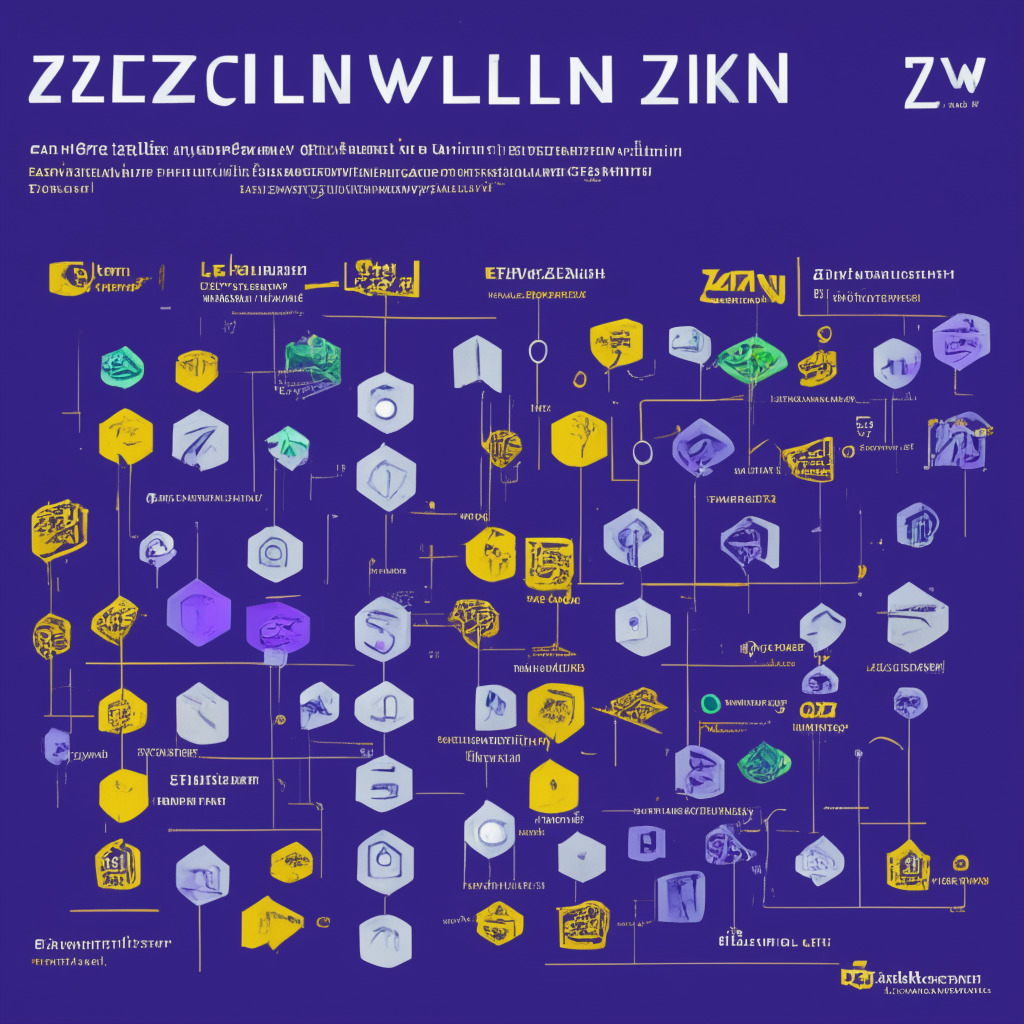Web3 technology can revolutionize consumer engagement by rewarding valuable input transparently using digital tokens. This fosters a healthier relationship and long-term retention of consumers, enabling brands to co-create and foster loyalty through recognizing contributors’ efforts.
Category: Technology
Binance Labs Backs Neutron: A Deeper Look at Cross-Chain Security in the Cosmos Ecosystem
Binance Labs leads a $10 million funding round for Neutron, a cross-chain smart contract platform focused on interchain security within the Cosmos ecosystem. This collaboration aims to develop a secure, cost-efficient environment for building smart contracts and decentralized applications across 51 blockchains in the Cosmos network.
Unified Ledger: Merging CBDCs and Tokenized Assets for a Financial Revolution
The future of finance could involve a unified electronic ledger merging central bank digital currencies with tokenized assets, streamlining transactions and improving global financial systems, according to a Bank for International Settlements report. Key benefits include automated smart contracts, reduced trade costs, and seamless cross-border operations.
Hedgehog App: Revolutionizing Crypto Investing with Robo-Advisers and Direct Asset Ownership
Hedgehog, an innovative robo-adviser app for cryptocurrency investors, offers automated financial guidance to manage crypto portfolios through diversified portfolios called stacks. Providing direct asset ownership, it integrates with Gemini as the official custodian, and focuses on catering to varied preferences, risk appetites, and investment strategies while ensuring compliance with regulatory requirements.
Tether and Kava Partnership: Stablecoin Expansion Amid Reserve Concerns
Tether plans to launch USDT tokens on Kava, a scalable layer-1 blockchain, providing Kava’s community access to the dependable stablecoin. Despite concerns about USDT’s stability and reserves, this partnership strengthens Tether’s position as a market-leading stablecoin.
Introducing Reth: Paradigm’s High-Performance Ethereum Client and its Impact on ETH’s Future
Paradigm unveils Reth v0.1.0-alpha, a new Ethereum client designed to enhance stability and client diversity, streamline contribution to Ethereum roadmap, and create a high-performance ecosystem for EVM developers and users. Reth’s robustness and efficiency set promising prospects for Ethereum’s future, but its actual impact remains to be seen.
Bpifrance Dives into Crypto: Boosting French Blockchain Innovation Amid Risks
Bpifrance, a French publicly funded investment bank, enters the crypto space by investing in hardware wallet manufacturer Ledger, exploring Web3 opportunities like Zero-Knowledge (ZK) proofs. The bank aims to support the growing French crypto and blockchain ecosystem, targeting over 450 startups and promoting French innovation in the global blockchain sphere.
Wimbledon Embraces AI Commentary: Boosting Fan Engagement or Threatening Human Commentators?
Wimbledon tennis tournament will integrate AI-powered features like commentary and player analysis, providing fans with deeper engagement. Leveraging IBM’s WatsonX technology, AI commentary will generate audio and captions for match highlights, offering insights on key moments and expanding accessibility to diverse matches.
Tether Expands to Kava Blockchain: Opportunities, Risks, and Future Implications
Tether is issuing its stablecoin, USDT, on the layer 1 blockchain Kava to boost liquidity across multiple blockchains. The move raised KAVA’s value and expanded Tether’s presence; however, potential challenges include increased competition and a more complex stablecoin market.
Arpa Network Launch: Revolutionizing Blockchain Privacy or Breeding Ground for Nefarious Activities?
Arpa Network, a decentralized computation protocol, launched on the Ethereum mainnet, introducing enhanced privacy for on-chain activities and expanded use cases such as dapps for lotteries, gaming, and identity management. However, skeptics question if increased privacy could enable nefarious activities but since blockchain is designed for transparency and traceability, this remains to be seen.
AI & Blockchain Revolutionize Parametric Insurance: The dRe Lifecycle Dashboard Debuts
Arbol and The Institutes RiskStream Collaborative have introduced the dRe Lifecycle Dashboard, an AI and blockchain-driven parametric insurance platform. The smart contract-based system automates claims, enhances transparency, and utilizes data from dClimate and Chainlink’s oracle network for parametric loss calculations in severe storm catastrophe transactions. The platform’s adaptability positions it as a game-changer in the insurtech landscape.
Terra Luna Classic’s Q3 Ambitions: Opportunities and Challenges in Network Growth
The Joint L1 Task Force (L1TF) has submitted a revised proposal for Terra Luna Classic’s Q3 development, focusing on LUNC and USTC supply reduction, upgrading the Cosmos SDK, integrating Block Entropy AI app chain, and collaborating with external teams. These ambitious plans aim to increase stability and growth but also present challenges for the network.
Bankruptcy and Revival: Core Scientific’s Path to Restructuring and Crypto Industry Impact
Bitcoin miner Core Scientific has filed its bankruptcy plan, focusing on revamping its business model after experiencing a boost in liquidity. The company attributes its improved performance to higher bitcoin prices, increased network hash rate, and reduced energy costs. The Chapter 11 bankruptcy plan serves as a vital tool in restructuring the company’s operations.
Crypto Payments in French Malls: A Step Towards Mainstream Adoption or Hurdle to Progress?
French real estate firm Apsys partners with domestic crypto payment provider Lyzi, allowing customers to use cryptocurrency for digital gift cards at multiple shopping malls. This collaboration is part of France’s growing interest in adopting and integrating cryptocurrency into daily transactions.
HSBC Enters Metaverse: Booming NFTs Attract Banks and Celebrities – Pros and Cons Explored
As NFTs gain traction, major players file patents and explore platforms, including HSBC’s venture into metaverse banking and Queen Productions’ plan to offer NFT-authenticated media. The growing interest and adaptation to emerging NFT and metaverse technologies signal an interconnected world, but challenges and skepticism remain.
HV-MTL Forge: Can Yuga Labs Sustain NFT Gaming Hype and Validate High Valuations?
Yuga Labs announces HV-MTL Forge, a workshop-building game centered around Bored Ape Yacht Club’s robot NFTs, set to launch on June 29. Owners of Sewer Pass NFTs can access the Forge game, where they customize workshops to secure community votes. The game builds upon the success of Yuga Labs’ controversial Dookey Dash, which generated $110 million in NFT trades.
Ava Labs Integrates AvaGPT to Enhance User Support: Innovation Meets AI Limitations
Ava Labs introduces AvaGPT, employing OpenAI’s ChatGPT technology to provide quick assistance to Avalanche users while ensuring complex queries are handled by their customer support. Through a partnership with Kapa AI, AvaGPT becomes an integral part of Ava Labs Core platform. However, Ava Labs acknowledges AI limitations and maintains transparency on the accuracy of chatbot information.
Flashbots Personnel Shake-Up Amid $1 Billion Valuation: Debating the Future of MEV & Blockchain
Crypto research and development firm Flashbots experiences major personnel changes amid raising funds at a $1 billion valuation. The company, known for its MEV-Boost middleware, faces challenges and aims to develop the SUAVE network, offering more accessible MEV extraction features to other blockchains.
Alibaba’s Crypto-Friendly Leadership Change: Boon or Bane for the Blockchain Industry?
Alibaba’s appointment of Joe Tsai, a known crypto enthusiast, as the company chair suggests potential increase in crypto-friendly endeavors. However, with China’s ambivalent relationship with blockchain and crypto, Tsai’s leadership may also put the company in a challenging position.
Bridging Bitcoin and Metaverse: Exploring the Potential of Bitmap Theory
Bitmap Theory, a groundbreaking concept bridging the gap between Bitcoin and the metaverse, enables ownership claims over Bitcoin blocks and integrates them into the metaverse. This open-source standard offers new opportunities for community-driven 3D spaces, facing both potential benefits and challenges for blockchain integration and user privacy.
Slim Jim’s Meataverse NFTs: Pros, Cons, and the Future of Web3 in Mainstream Business
Slim Jim enters the Web3 space with its interactive “Meataverse,” offering free GigaJim NFTs to fans through the Ethereum scaling network, Polygon. This initiative highlights the potential impact of emerging blockchain technology on businesses across various industries.
Iris Energy’s Hash Rate Expansion: Investing in Data Centers and Venturing into AI
NASDAQ-listed Bitcoin mining firm Iris Energy aims to increase its hash rate capacity by 63% to 9.1 EH/s by early 2024, utilizing its 80MW data center in Texas. The company’s shares surged 21% following the announcement, reflecting a growing interest in the blockchain industry. Iris Energy also explores opportunities in energy-intensive compute applications such as AI.
AI Crackdown on Chicken or Egg Debate: Boon or Bane for Philosophical Discourse?
AI, like ChatGPT, tackles the chicken-or-egg conundrum with a concise “Egg,” aligning with scientific consensus. While AI’s potential to simplify and inform on philosophical debates is remarkable, it’s crucial to maintain human critical thinking and discourse for comprehensive understanding.
Polygon PoS Upgrade to zkEVM Validium: Security vs Scalability vs Decentralization Debate
Polygon co-founder Mihailo Bjelic proposes an upgrade to the Polygon PoS network, suggesting a shift to a “zkEVM validium” version for increased security through zero-knowledge proofs. This upgrade would enable Polygon zkEVM for high-value transactions, offering lower fees and enhanced security from Ethereum’s features, targeting applications like Web3 gaming and social media.
EDX Markets: A Game Changer for Crypto, Traditional Finance Giants Enter the Fray
EDX Markets, a digital asset market backed by Fidelity Digital Assets, Charles Schwab, and Citadel Securities, aims to bring competition, transparency, fairness, and safety to the crypto space. Unlike other exchanges, EDX Markets doesn’t custody customer assets and requires users to rely on financial intermediaries, appealing to regulators.
Binance Embraces Bitcoin Lightning Network: Scalability vs Centralization Risks
Binance is operating nodes on the Bitcoin Lightning Network to address network congestion and improve transaction speed. The integration aims to make Bitcoin transactions more efficient, but faces challenges, including centralization concerns. Meanwhile, Binance navigates a legal battle with the SEC.
Exploring Polygon PoS Upgrade to zkEVM Validium: Scalability, Security, and Future Prospects
The Polygon Labs engineering team proposed an upgrade to Polygon Proof-of-Stake (PoS) sidechain, transitioning to ‘zkEVM Validium,’ an Ethereum-secured Layer 2 network secured by zero-knowledge proofs. Targeted for Q1 2024, this upgrade aligns with Polygon 2.0’s vision and aims to enhance scalability, security, and interoperability within the broader cryptocurrency ecosystem.
Biden’s AI Summit: Balancing Innovation, Regulation, and Blockchain Implications
President Joe Biden is set to meet with AI experts to discuss the future of artificial intelligence and the need for legislation and guidelines. This comes at a time when the U.S. government has yet to establish a comprehensive strategy for AI development and cryptocurrency regulation, while Europe, China, and the United Kingdom have already made progress in these areas. The meeting aims to address concerns on policy, regulation, and balancing innovation with safety and risk mitigation.
Škoda Auto’s NFT Venture: Pros, Cons, and the Future of Automotive Industry in Web3 Era
Škoda Auto partners with Near Protocol to launch “Škodaverse India,” a Web3 and NFT experience with low gas fees, multiplatform interoperability, and eco-friendliness. This marks Škoda’s entry into the Web3 space, offering unique digital assets, potential value appreciation, and exclusive perks tied to NFT ownership, highlighting growing adoption of blockchain technology in various industries.
Fortnite x Nike Collaboration: The Future of Blockchain, Crypto, and Gaming?
Fortnite recently announced a collaboration with Nike and its NFT-driven .Swoosh Web3 platform. The partnership, “Airphoria,” allows in-game Nike-branded experiences in Fortnite Creative Mode. Users can participate in a Nike sneakerhunt and earn a free in-game accessory.
Polygon’s ZK Technology Upgrade: Boon or Bane for Blockchain’s Future?
Polygon aims to make its primary chain compatible with zero knowledge (ZK) technology, potentially transforming it into a zkEVM validium and ensuring Ethereum Virtual Machine compatibility. This upgrade could enhance security, eliminate reorgs, expedite transactions, and scale the blockchain more effectively. However, the complex integration may introduce unforeseen challenges.
MSc in Metaverse: Pioneering Education or Premature Investment in Emerging Tech?
The University of Nicosia (UNIC) introduces a Masters of Science in Metaverse degree, covering metaverse design and management, AR, VR, NFTs, blockchain, and more. While aiming to address the growing interest in metaverse technology, this ambitious program also sparks skepticism due to its nascent nature.





